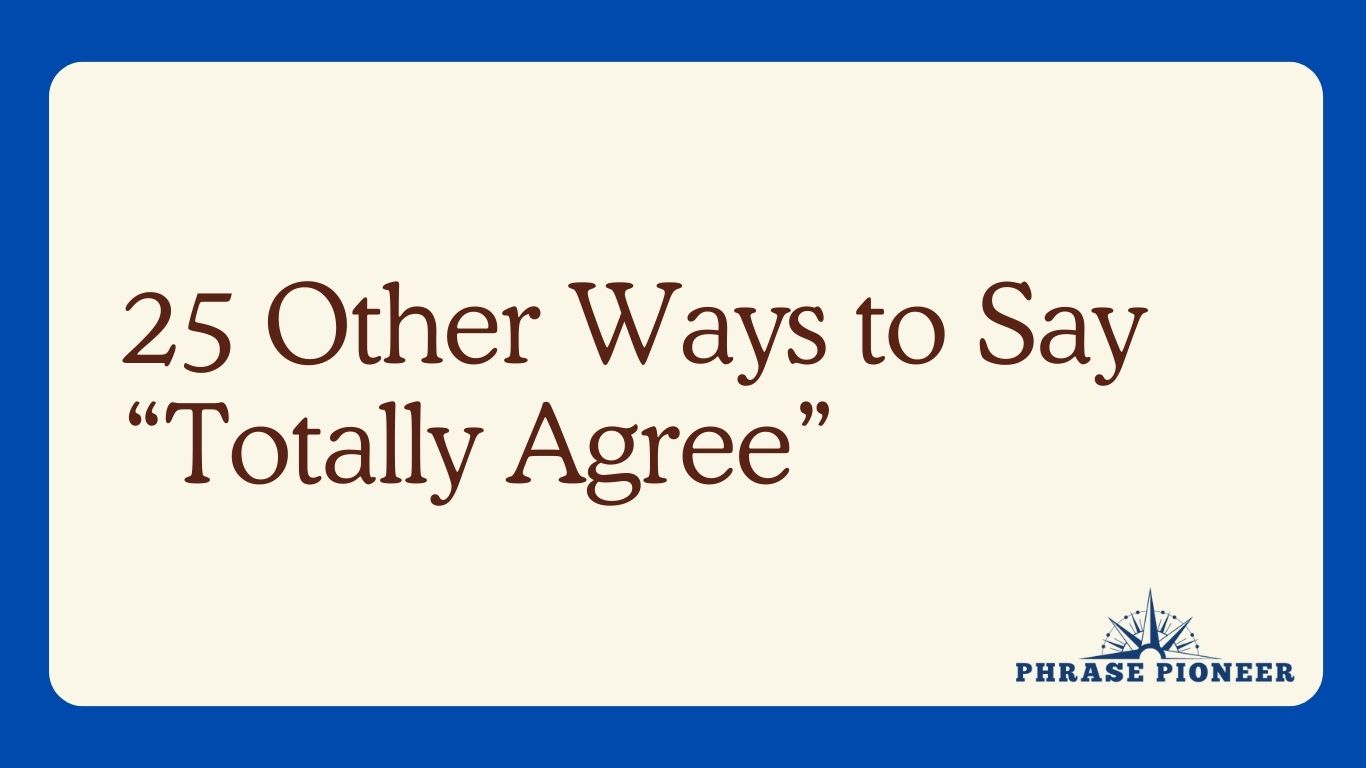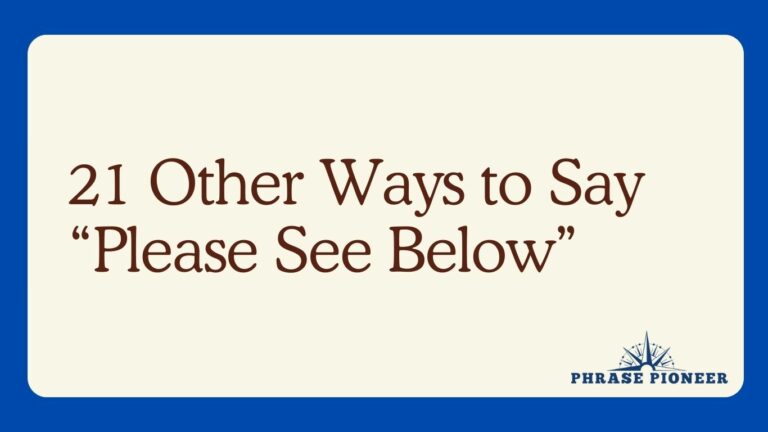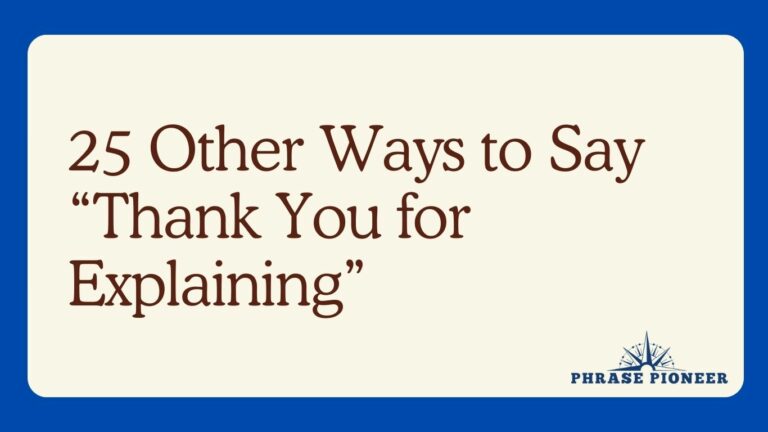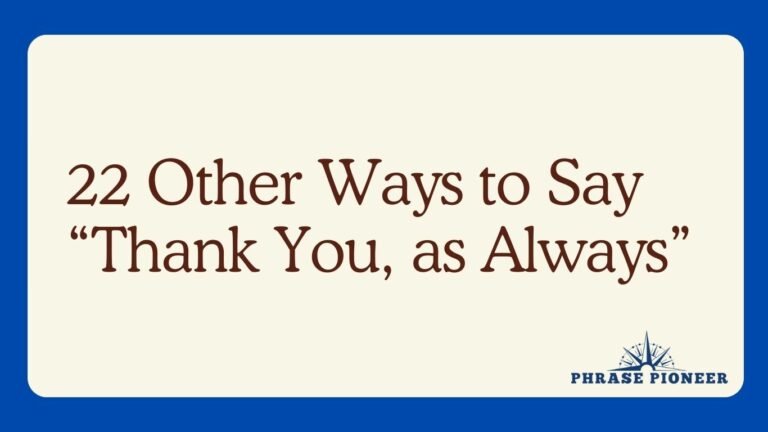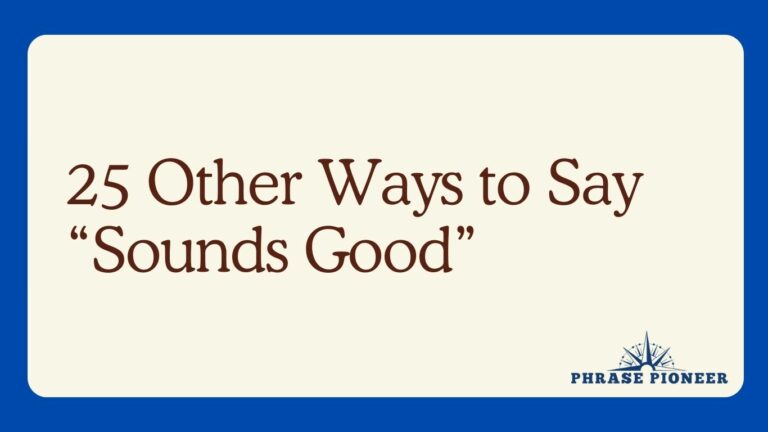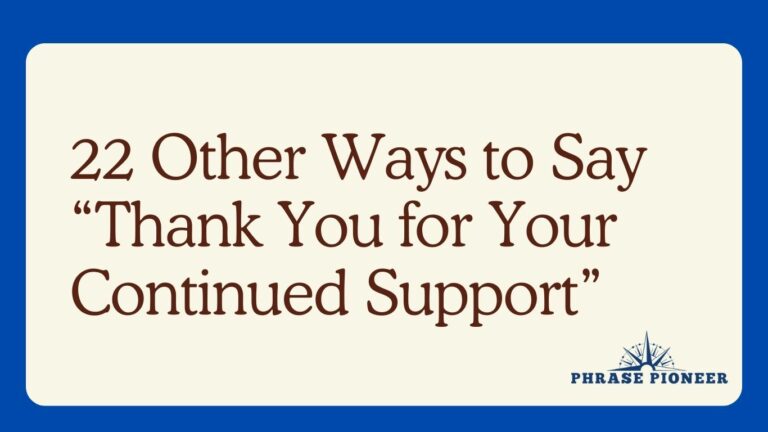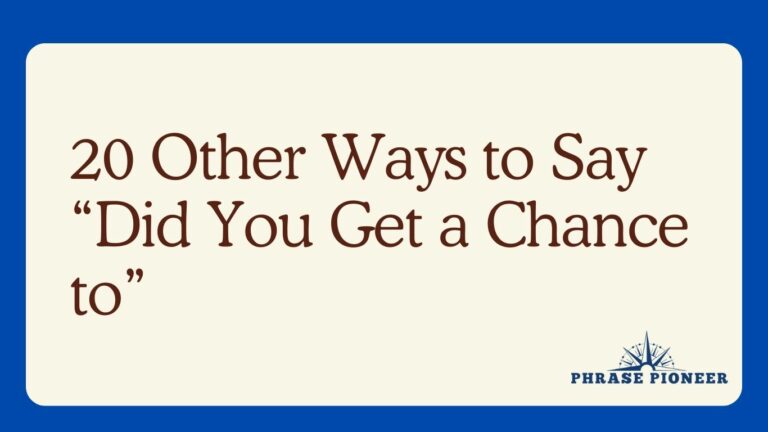25 Other Ways to Say “Totally Agree”
Expressing agreement can be done in various ways, depending on the context and the degree of enthusiasm you wish to convey.
Here are 25 alternative ways to articulate complete concordance, each with a unique nuance.
They’re grouped into categories to fit different social and professional situations, with each alternative followed by an example sentence and an explanation.
Professional Consensus
- I’m in full accord.
- Example: “After reviewing the budget report, I’m in full accord with your conclusions.”
- Explanation: This phrase conveys agreement in a professional and formal manner, ideal for business or academic discussions.
- Our views align perfectly.
- Example: “It’s clear from our discussion that our views align perfectly on this matter.”
- Explanation: A polished way to express mutual understanding, appropriate for both professional and collaborative contexts.
- I share your perspective entirely.
- Example: “Regarding the new marketing strategy, I share your perspective entirely.”
- Explanation: This statement indicates complete agreement while maintaining a professional tone.
- Absolutely, we’re on the same page.
- Example: “Absolutely, we’re on the same page when it comes to project deadlines.”
- Explanation: A phrase that shows strong agreement and unity in thought, suitable for work settings.
- Your position has my full support.
- Example: “Your position on the issue has my full support; it benefits the company as a whole.”
- Explanation: Implies not only agreement but also a willingness to back up the mentioned stance or opinion.
Casual Agreement
- Couldn’t have said it better myself.
- Example: “You think this is the best burger in town? Couldn’t have said it better myself.”
- Explanation: An informal way to express strong agreement, suggesting that the person has perfectly articulated your own thoughts.
- You took the words right out of my mouth.
- Example: “You took the words right out of my mouth; this policy needs to change.”
- Explanation: Indicates that someone has voiced exactly what you were thinking; very casual.
- We’re in violent agreement.
- Example: “We’re in violent agreement here—this is the best approach to take.”
- Explanation: A passionate expression of agreement, often used humorously to emphasize how strongly you concur.
- You’re preaching to the choir.
- Example: “You’re saying exercise is important? You’re preaching to the choir!”
- Explanation: Asserts that you already believe or agree with what is being said, often used in informal conversation.
- A thousand times yes!
- Example: “A road trip over the holidays? A thousand times yes!”
- Explanation: Shows very enthusiastic agreement with the suggestion or opinion being proposed.
Strong Endorsements
- You’ve hit the nail on the head.
- Example: “By suggesting a user-friendly interface, you’ve hit the nail on the head.”
- Explanation: A phrase that not only agrees but also praises someone for their accurate observation or solution.
- Count me in agreement.
- Example: “If the team is pushing for these changes, count me in agreement.”
- Explanation: Expresses a firm and clear stance of agreement, often used when indicating support within a group.
- I stand firmly by your side on this.
- Example: “Concerning the new health initiative, I stand firmly by your side on this.”
- Explanation: A heartfelt endorsement that also indicates solidarity with the speaker’s position.
- That’s a resounding yes from me.
- Example: “Would I recommend this service? That’s a resounding yes from me.”
- Explanation: This communicates not just agreement but also strong approval or recommendation.
- Indisputably, we concur.
- Example: “Indisputably, we concur that this approach will yield results.”
- Explanation: An unequivocal and authoritative way to express agreement, suitable for formal decision-making.
Amicable Conclusions
- Precisely my thoughts.
- Example: “So you think the book was incredible too? Precisely my thoughts.”
- Explanation: Congenial and straightforward, this expression indicates your thoughts exactly mirror those of the speaker.
- I second that wholeheartedly.
- Example: “You believe this cause deserves more attention? I second that wholeheartedly.”
- Explanation: Shows both agreement and emotional investment in the statement being endorsed.
- This is a unanimous yes from me.
- Example: “Extending the vacation policy? This is a unanimous yes from me.”
- Explanation: Playfully suggesting that if you had multiple votes, they would all be in favor.
- No objections here.
- Example: “If you all want to start the meeting earlier, no objections here.”
- Explanation: A quiet and harmonious way to show agreement without any reservations.
- You have my vote.
- Example: “Expanding our product line? You have my vote.”
- Explanation: Indicates support for the suggestion or opinion being offered, borrowing terminology from voting procedures.
Playful Concordance
- You’re bang on!
- Example: “Friday nights are for pizza? You’re bang on!”
- Explanation: A light-hearted, informal expression that matches someone’s sentiment exactly.
- Ditto that!
- Example: “This coffee is the best way to start the morning. Ditto that!”
- Explanation: A fun and succinct way to say that you agree with what has just been said.
- Yes, yes, and yes again!
- Example: “Should we get ice cream after dinner? Yes, yes, and yes again!”
- Explanation: This phrase shows repetitive and emphatic agreement.
- I’m thinking along the same lines.
- Example: “More pet-friendly spaces in the office would be great, don’t you think? I’m thinking along the same lines.”
- Explanation: Indicates that your thoughts coincide with the speaker’s, in a casual and collaborative manner.
- Right there with you.
- Example: “A beach holiday is long overdue. Right there with you.”
- Explanation: Conveys that you are in complete agreement, positioning yourself alongside the speaker.
Conclusion
Whether you seek a diplomatic nod in a boardroom or want to echo a friend’s sentiment at a social gathering, these 25 alternatives to “Totally Agree” provide nuanced and apt ways to express your concurrence.
Employ them to enrich dialogue, underscore consensus, and foster positive interactions across all contexts. They demonstrate that agreeing with someone can be done with style, clarity, and sometimes even a bit of playfulness.

